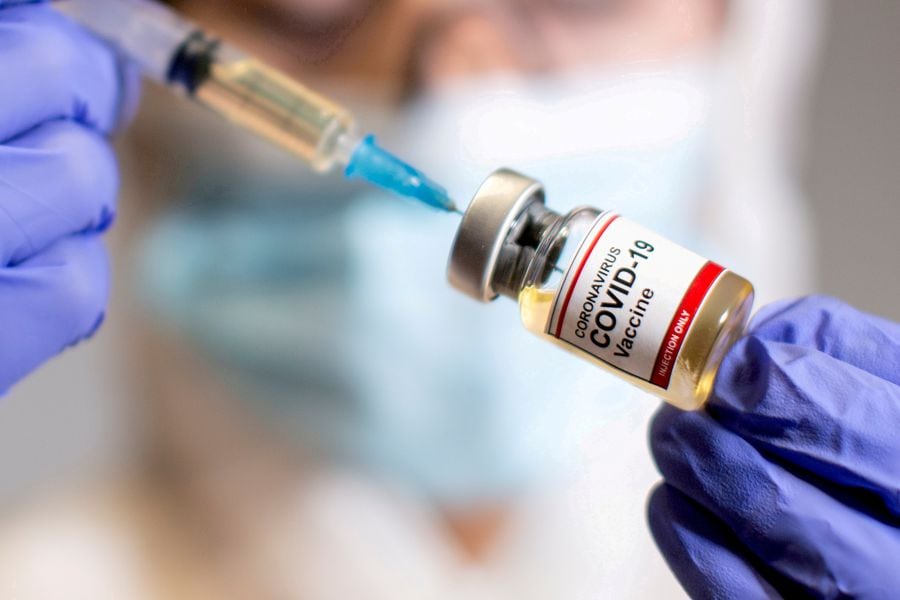Almost one million 300 thousand adults have not received no vaccine against Covid-19 in the country, according to Minsal figures. And although it is an issue that worries the authorities and experts, there are no immediate plans to make inoculation mandatory.
“At this time we have not thought about installing the mandatory vaccination. We have achieved a high percentage of immunization and the focus should be to continue encouraging, educating, “said the Undersecretary of Public Health, Paula Daza.
At the moment, in the country – as in other parts of the world – being inoculated has become a requirement to enter bars, restaurants, stadiums or cinemas, hand in hand with the Mobility Pass, whose prerogatives have been validated by the Supreme Court within the framework of the protection appeals presented by anti-vaccine groups.
This, in the opinion of experts, could be taken as a precedent if it is resolved, in the future, to force vaccination against the coronavirus.
Currently, All the vaccines of the National Immunization Program and which are distributed free of charge to risk groups (infants, children, pregnant women and the elderly, mainly), are mandatory. Even, there have already been cases in which the health services have resorted to the courts to force vaccination of people from priority groups.
But can voluntariness be suppressed in the vaccine against Covid-19?
At the beginning of September, the Advisory Committee on Vaccines and Immunizations (Cavei) defined that “Will review the mandatory nature of Covid-19 vaccination in general and in particular for certain groups, when there is a sanitary registry for the vaccines considered in the national vaccination strategy ”.
Thus, the status of the vaccines that are being used in the country is the key element. So far, the four drugs – Pfizer, Sinovac, AstraZeneca and Cansino- They are only approved for emergency use by the Institute of Public Health (ISP). What does it mean? They do not yet have a health registry and their implementation was approved only in the context of the emergency.
Consulted the ISP, so far none of the vaccine producing laboratories has requested definitive authorization. Of course, in the case of Pfizer, the regulatory agency, the United States Food and Drug Administration (FDA), gave its vaccine “full authorization” in mid-August proast.
However, steps and signs of what is coming have already been taken. Recently, The Covid-19 Advisory Council recommended to the Ministry of Health to make the vaccine mandatory for health personnel and nursing homes, emulating the policy implemented in France. At that time, the president of the instance, the epidemiologist Ximena Aguilera, realized that “We have in our institutional arrangement the obligation of the vaccine for certain jobs, such as food handlers and for health personnel who go to clinical fields and who are obliged to use vaccines such as hepatitis B vaccines ”.
The infectologist of the University of Chile and president of Cavei, Jeannette Dabanch, explains that under normal conditions the definitive authorization of a vaccine is delivered after a phase 4 of adequate population surveillance on the impacts on reducing the disease. “The pandemic is still an unstable scenario, not only in Chile, but also globally. As long as we do not have a clear scenario about which vaccines are most effective and which are the most efficient groups to vaccinate, it is difficult to set deadlines for an eventual obligation ”, he points out.
Thus, and taking into account the supply -for example- of the formula from the Pfizer laboratory, the infectologist explains that “the FDA is the regulatory entity for the US, and you have to look at what Pfizer does in Chile. Despite this, if a vaccine approved in an emergency receives full authorization, it will not necessarily be mandatory, Well, there are other conditions to evaluate, such as that the State also has the product available, because if it is mandatory, I can ask for it to be administered.. And currently Pfizer is not the most widely used vaccine in our country, nor the most available in the world, in terms of its own characteristics ”.
So far, the National Immunization Program (PNI) establishes -by decree- 18 mandatory vaccines against immunopreventable diseases. In them they are counted those of the newborn, infants, for minors of school age, among others. And in the case of health personnel, it is established that at least 85% of the permanent or transitory personnel of a healthcare facility have their vaccines against hepatitis B and influenza.
However, Dabanch explains that “there is no punitive behavior that implies that the person will not be able to practice as a doctor or nurse.”
On the other hand, Carlos Pérez, the infectologist at Clínica U. de los Andes and dean of Medicine at U. San Sebastián, projects that over the months, and in view of the fact that vaccination can be transformed into an annual booster schedule, the laboratories will require their final authorizations and the corresponding health record, which would pave the way for the health authority to make that determination.
“Making the decision to make it mandatory has different political and public opinion overtones. But in my opinion, we should progress in the obligation, as is done with vaccines in school-age minors. The vaccines that become mandatory are, in general, when they have relevance to the public health of the individual and the community, also when they are safe and effective. When these vaccines have made the course of the pandemic change in the country in an obvious way, there are few arguments to be against an eventual obligation ”, he says.
In turn, the vice president of the Chilean Society of Infectious Diseases (Sochinf) and pediatric infectious disease specialist Cecilia Vizcaya, estimates that “It is very possible that by 2022 the vaccine will end up being mandatory like the flu vaccine. The projection is that with an endemic disease, immunization will be annual with vaccines that vary from year to year according to the circulating variants. This year in Chile, studies are being carried out in children between six and 11 years old, and also between three and six, which means that we will have a lot of information available locally to support an eventual decision that points towards being compulsory ”.
–


